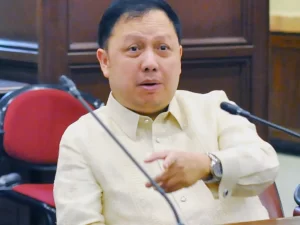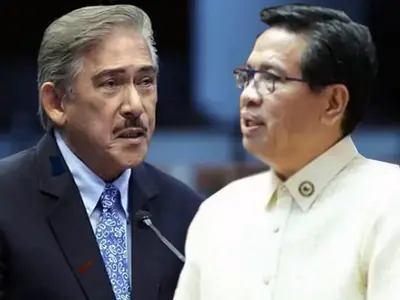
Marikina 2nd District Rep. Miro Quimbo
MARIKINA 2nd District Rep. Miro Quimbo on Wednesday asked Department of Public Works and Highways (DPWH) Secretary Vince Dizon and other officials to confirm if the controversial “insertions” in the 2025 budget came from the bicameral conference committee (bicam) and not from the House of Representatives small committee.
In a budget hearing, Quimbo said the House actually reduced the DPWH budget by P73.7 billion, from P898 billion in the National Expenditure Program (NEP) to P825 billion when it transmitted the General Appropriations Bill (GAB) to the Senate.
“Kung dito pa lang binabawasan, paano ka magsisingit? Binawasan nga ng P73.7 billion ng House. So how can you have an insertion?” Quimbo said.
But he noted that after the bicam, the DPWH budget ballooned to P1.13 trillion, an increase of nearly P289 billion.
Officials from the DPWH confirmed Quimbo’s account. Undersecretary Ador Canlas and Director Alex Bote said the department had no knowledge of changes after Senate plenary deliberations, only discovering them when the final General Appropriations Act was released.
“That’s on the record,” Director Bote told lawmakers.
Quimbo said this proves that the real changes – and the so-called “insertions” – happen during the bicam, not in the small committee of the House as often portrayed.
Quimbo also pressed for reforms in the 2026 budget process, urging the Department of Budget and Management (DBM) to adopt a full disclosure policy:
“Let’s stop the finger-pointing and confusion. If a Congressman or Senator proposes a project, put their name on it. Like in the U.S., earmarks are transparent. Lawmakers must own and defend their insertions before the public.”
DPWH Secretary Vince Dizon backed the proposal, saying it aligns with the administration’s push for greater accountability.
“We absolutely agree with the recommendations of [Rep. Quimbo]. Tama po iyan at tingin ko iyan din ang gusto ng ating Pangulo,” Dizon said.
Quimbo disclosed that his district will receive P486 million under the DPWH budget, which he estimated to be among the lowest 20 percent of congressional districts. Still, he said he was willing to defend the allocation.
“I accept the decision. My job is to fight for Marikina and defend what we receive before my people. Every lawmaker should do the same,” he said.



